TORONTO (Nov. 20) — Though the Stanley Cup playoffs are many months and weeks in the distance, the Toronto Maple Leafs could be performing better, right now, than at any time since the franchise–record 16–game, regular–season unbeaten streak of Nov. 22 to Dec. 26, 2003. I covered that entire run of 14 wins, one overtime defeat and one tie as a reporter for The FAN–590, Canada’s first all–sports radio station. It began with a 5–3 victory at Vancouver and ended with a 3–1 loss on the road to the New York Islanders, contributing largely to the club’s first triple–digit accumulation in the standings: a 45–24–13 record, under the late Pat Quinn, for 103 points.
In the post–1967 era, the Maple Leafs have embarked on 10 lengthy hot streaks, including the current 10–1–0 eruption that began at Chicago on Oct. 27… and wiped clean (for now) the taste of a frighteningly familiar 2–4–1 stumble from the gate (including that 7–1 loss to Pittsburgh’s farm team). None, of course, have assisted the club toward an appearance in the Stanley Cup final. But, several have been markedly indicative of a deep playoff run. Could that be the case with the current team? We’ll find out, rather critically, in April and May of next calendar year. In the meantime, the Maple Leafs cannot break their interminable string of opening–round defeats (dating to the spring of 2004) without first qualifying for the Stanley Cup tournament. And, the 2021–22 club — backstopped by the splendid goaltending of Jack Campbell — is banking valuable, early season points toward that objective.
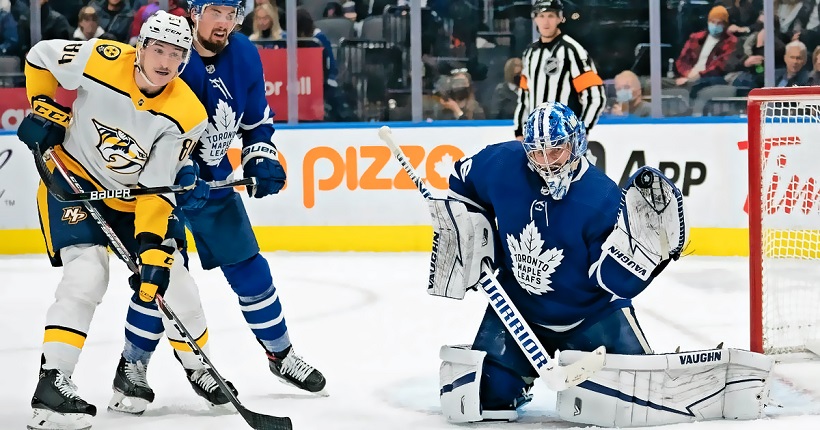
JACK CAMPBELL BLANKED THE PREDATORS THIS WEEK FOR HIS THIRD SHUTOUT OF THE SEASON. GETTY IMAGES/NHL
Here is a chronological review of the other nine hot streaks and how they related to the end result:
DEC. 9, 1970 to JAN. 13, 1971: 13–1–2 in 16 GAMES
This unanticipated streak came after the Maple Leafs finished last in the six–team East Division in 1969–70, then similarly began 1970–71 with a 7–18–1 blight in their first 26 matches. Through the games of Dec. 8, 1970, second–year coach John McLellan had amassed an unsightly mark of 36–52–14. It appeared certain the club would again stumble well beneath playoff contention, even with the East sector having added expansion entries from Buffalo and Vancouver. Out of nowhere, however, came a run of only one defeat in 16 starts. It began (Dec. 9) with a 4–0 shutout of Montreal at Maple Leaf Gardens that featured a bench–emptying brawl at 14:27 of the first period, perhaps uniting the team. Referee Bill Friday handed out 102 penalty minutes, which included fighting majors to Jim Harrison, Rick Ley and rookie Darryl Sittler of Toronto; Bill Collins, Terry Harper and Marc Tardif of Montreal. Habs’ defenseman Guy Lapointe received a minor and misconduct for leaving the penalty box to join the fracas (he’d been sent off 1:07 earlier for slashing). Also part of the streak was a 9–1 romp over Philadelphia at the Gardens (Dec. 26) and a 13–0 annihilation of Detroit one week later (Jan. 2) on Carlton Street. The latter remains, more than half–a–century later, the second–largest shutout triumph in National Hockey League history — tied with Vancouver 0 at Edmonton 13 on Nov. 8, 1985 (astonishingly, Wayne Gretzky did not score) and behind Detroit 15 at New York 0 on Jan. 23, 1944. Toronto finished fourth in the East Division in 1970–71, 19 points clear of Buffalo, and lost in six games to the second–place Rangers in the opening (quarterfinal) playoff round.
FEB. 16 to MAR. 29, 1975: 11–3–5 in 19 GAMES
Though it also rescued the Leafs from playoff oblivion, this late–season outburst, in 1974–75, bore minimal relation to the Stanley Cup tournament, even if the club did win its first playoff round since 1967. Under second–year coach Red Kelly, the Leafs were scuffling at 20–28–9 and coming off an 8–3, home–ice pasting by Pittsburgh (Feb. 15). A 5–5 draw at New York the following night began the hot streak in which Toronto twice escaped embarrassing setbacks at the Gardens. The Leafs were about to be humiliated by the expansion Washington Capitals on Mar. 1. The ’74–75 Capitals are still, by several lengths, the most–feeble outfit in NHL annals, finishing 8–67–5 for 21 points in the first season of the 80–game schedule. But, the Caps held a 4–3 lead at the Gardens entering the final 1½ minutes of play. That’s when Dave Keon (at 18:35) and George Ferguson (at 19:53) beat former teammate Ron Low to avoid the shame. Four nights later saw the Leafs trailing another dreadful team (Detroit), 4–3, after two periods. Darryl Sittler evened the count at 4:13 of the final frame, then finished a hattrick by fooling Jim Rutherford for the winning tally with 22 seconds left. Only once in the streak did the Leafs prevail with ease: a 9–2 road rout of the Minnesota North Stars. It ended with a thud when Buffalo demolished Toronto, 11–3, at the Gardens (Mar. 16). The Leafs edged Los Angeles in a best–of–three preliminary round for their first playoff triumph since 1967, then were rudely dispatched in four straight by eventual Stanley Cup–champion Philadelphia.
JAN. 28 to MAR. 5, 1978: 11–1–4 in 16 GAMES
Under rookie coach Roger Neilson, and with Darryl Sittler enjoying the finest season of his Hall–of–Fame career, the 1977–78 Maple Leafs played in the Stanley Cup semifinals for the first time since the 1967 NHL championship. With a 41–29–10 record, the club amassed 92 points, second only (at the time) to the 1950–51 edition (95 points). Sittler, in his playing prime at 27, scored 45 goals and added 72 assists for 117 points, finishing behind only Guy Lafleur (132 points) and Bryan Trottier (123) for the Art Ross Trophy. Sittler’s total ranks second in Leafs history to Doug Gilmour, who recorded 127 points in 1992–93. Toronto began the ’77–78 schedule at 19–6–3 after 28 games, then flattened out. The scorching run of 11–1–4 had the club a full 20 games over .500 (39–19–10) while threatening Buffalo for second place in the Adams Division. But, a puzzling 2–10–2 slide to end the season left Toronto 13 points behind the Sabres. Most games during the streak were close, except for a 7–1 romp at Pittsburgh (Mar. 12). In the playoffs, the Leafs breezed past Los Angeles (7–3 and 4–0) to win the preliminary round, then famously rebounded from 2–0 and 3–2 deficits to upset the New York Islanders on Lanny McDonald’s overtime goal in Game 7 at the Nassau Coliseum. Montreal swept Toronto, playing without injured defenseman Borje Salming, in the Cup semifinals en route to its third of four consecutive NHL titles under Scotty Bowman.
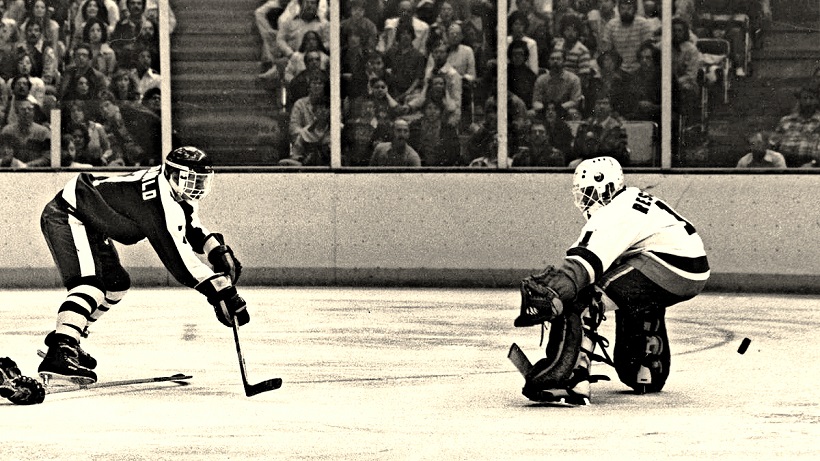
LANNY McDONALD BEATS GLENN RESCH FOR SERIES–WINNING OVERTIME GOAL ON APR. 29, 1978.
FEB. 11 to APR. 3, 1993: 18–3–3 in 24 GAMES
The streak that consummated Doug Gilmour’s legacy with the Maple Leafs and foreshadowed the club’s best playoff performance since 1967. While the Leafs lost only three times in 24 games, Gilmour amassed 12 goals and 37 assists, ultimately setting club marks for assists (95) and points (127). Included, was a team–record six helpers in a 6–1 romp over the Minnesota North Stars, at the Gardens, Feb. 13. This memorable Toronto club came alive after a pedestrian first half of the schedule under new coach Pat Burns, hired from Montreal the previous May by general manager Cliff Fletcher, who had earlier obtained Gilmour from Calgary in a still–record 10–player swap. The Leafs were actually one game below .500 (16–17–7) on Jan. 6, but compiled a 28–12–4 ledger in their remaining matches, primarily resulting from the 18–3–3 run over a span of 50 nights. Twice, the club embarked on unbeaten western trips: to Vancouver (8–1), San Jose (5–0) and Los Angeles (5–2); then to Winnipeg (5–4), Minnesota (3–3), Edmonton (6–2) and Calgary (4–0). The only losses occurred on the road at Detroit (5–1), Washington (3–1) and Quebec (4–2). Toronto finished with a club–record 99 points (44–29–11). Speaking by microphone after being honored in the home finale (Apr. 13), Gilmour told the Gardens’ crowd “we’re going to do something special for you in the playoffs.” Neither was he joking. In 21 memorable games over 42 nights, Gilmour rang up a team–record 35 points and the Leafs came within minutes of reaching the Stanley Cup final for the first time since 1967. Seven–game victories over Detroit and St. Louis led to a Game 7 home defeat against Wayne Gretzky and the Los Angeles Kings. Not before, or since ’67, has Toronto ventured so near to the title round.
OCT. 7 to NOV. 9, 1993: 12–1–3 in 16 GAMES
Coming off their record points season and near–Stanley Cup final miss, the Leafs began 1993–94 as never before with a record 10–game win streak (nine in regulation) — overshadowed, across Canada, by the Toronto Blue Jays’ run to a second consecutive World Series championship. It was, in fact, only moments before Joe Carter’s legendary, walk–off home run against the Philadelphia Phillies that the Leafs broke the NHL mark of eight wins to start a season — blanking Tampa Bay, 2–0, at the baseball stadium (fittingly) in St. Petersburg. Forward Rob Pearson had scored in overtime the previous game (at the old Miami Arena) to edge the expansion Florida Panthers in the only non–regulation result of the 10–game streak. Hindsight proves that the 12–1–3 start to ’93–94 was the last gasp of an eventual slide under Burns and Gilmour. The Leafs were only 33–29–12 in the remainder of the season; then just 21–19–8 in the 48–game schedule of 1994–95. But, Gilmour, Dave Andreychuk, Wendel Clark and Felix Potvin had one more playoff burst — also a run to the Stanley Cup semifinals. Series wins over Chicago and upstart San Jose brought the Leafs up against future coach Pat Quinn and the Vancouver Canucks for the Western Conference title. But, the club wilted after Peter Zezel’s overtime goal in Game 1 at the Gardens. Toronto lost four straight, including three in succession at the old Pacific Coliseum; NHL clubs playing a 2–3–2 home–road rotation in ’94. Forward Greg Adams dispatched the Leafs with an overtime goal in Game 5.
JAN. 29 to FEB. 22, 2003: 10–1–0 in 11 GAMES
The Big Irishman, Quinn, was now deeply ensconced behind the Toronto bench and trying to guide his club into the Stanley Cup semifinals for a third time. The Leafs had bowed to Buffalo in 1999 and Carolina in 2002 with a Cup final berth on the line — both advances backstopped by Curtis Joseph, a July 1998 free agent acquisition from Edmonton. With Cujo having defected to Detroit, the 2002–03 Maple Leafs were the domain of future Hall–of–Fame goalie Ed Belfour, who had won the 1999 Stanley Cup with Dallas. After three consecutive losses, including back–to–back shutouts by Buffalo and Colorado, the Leafs sprung to life at Carolina on Jan. 29, winning 3–2. Carrying on to Atlanta, Florida and Tampa bay, the club swept eight points in its four–game southern trip. The only loss in the 11–game streak occurred at home, against Edmonton (5–4), on Feb. 11. Twice, the Leafs won five consecutive games, finishing the streak against Chicago, Ottawa, Carolina, Washington and Montreal. The team then flattened out with a 9–7–5 record in its final 21 matches. Toronto was beaten by Philadelphia in seven games in the first playoff round; Belfour and the Maple Leafs getting smoked, 6–1, on the road in the decisive match.
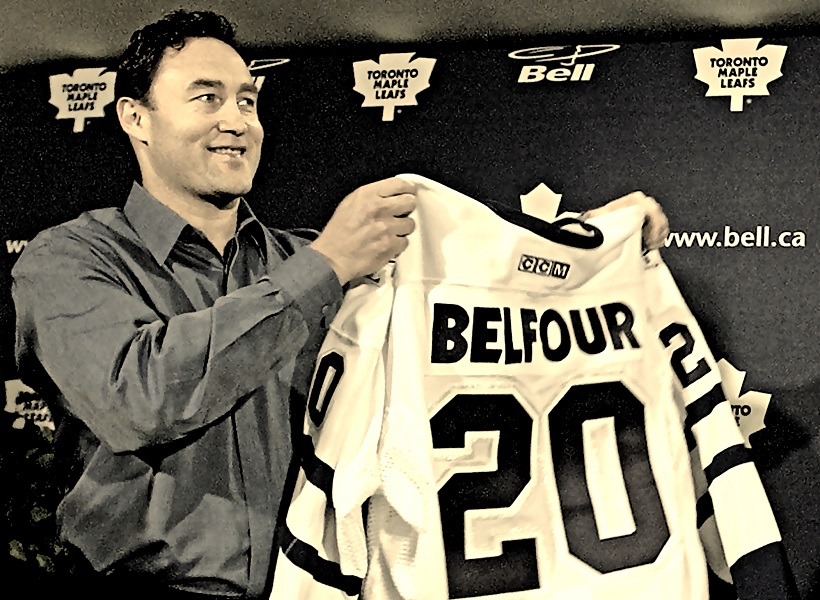
THE EAGLE FLEW NORTH FROM DALLAS BUT COULDN’T GET THE LEAFS PAST THE SECOND ROUND OF THE PLAYOFFS.
NOV. 22 to DEC. 26, 2003: 14–0–2 in 16 GAMES
Belfour was still in goal, and Quinn behind the bench, when the Leafs embarked on the longest regulation–time surge in franchise history. It began at Vancouver on the 40th anniversary of the John F. Kennedy assassination and ended 33 nights later at the Nassau Coliseum. Along the way, the club won eight consecutive games in regulation (Nov. 22–Dec. 6), outscoring the opposition, 27–12. An overtime loss at St. Louis on Dec. 9 and a tie at Washington on Dec. 19 were the only blights through the 16–game stretch; the Leafs amassing 30 of 32 points. The streak appeared in jeopardy the night before it ended. Toronto held a 5–2 lead on the New York Rangers at Madison Square Garden before the home team roared back with three consecutive goals to send the match into overtime. But, Mats Sundin, the kingpin of all the Leafs’ success under Quinn, lengthened the record run by beating Jussi Markkanen at 3:35 of the extra frame. Incredibly, Toronto beat the Rangers four times during the streak which ended with a 3–1 loss to the Islanders on Dec. 27. A seven–game victory over Ottawa — Toronto’s most–recent playoff triumph — was followed by a six–game loss to Philadelphia. The club did not again qualify for the Stanley Cup tournament in a full 82–game schedule until 2016–17, in Auston Matthews’ Calder Trophy season.
JAN. 12 to MAR. 1, 2014: 11–2–3 in 16 GAMES
NOV. 20 to DEC. 16, 2014: 10–1–1 in 12 GAMES
Streaks that came out of nowhere… and led to nowhere. The surge that began midway through the 2013–14 season actually had the Leafs challenging for first place in the Atlantic Division. It unraveled after a western–USA trip in which Randy Carlyle made a colossal coaching blunder. Starting goalie Jonathan Bernier had tweaked a groin–muscle in Anaheim on Mar. 10. After missing a game the following night in San Jose, Bernier was still in no condition to face his former team, the Kings, for the first time. But, he somehow talked Carlyle into starting against Los Angeles, Mar. 13, at the Staples Center. Bernier lasted almost one period, coming to the bench, re–injured, at 19:38 in favor of back up James Reimer. Though Toronto won the game, 3–2, it lapsed into an eight–game losing streak and a 2–12 mark in its final 14 starts. The Leafs missed the playoffs for the eighth time in nine years.
To start the following season, the Leafs were a middling 9–8–2 after 19 games and coming off a 9–2 home–ice embarrassment against Nashville. A bounce–back 5–2 win, two nights later, over Tampa Bay ended with the infamous “salute–gate” — the Toronto players refusing to acknowledge and raise their sticks to fans at the Air Canada Centre, evidently still smarting from the post–Nashville criticism. The victory lit a spark under what would become the most–shameful Leafs team of the post–Harold Ballard era. Toronto lost just once in its 11 games (5–3 at New Jersey), prevailing in the shootout over Detroit and Los Angeles; finishing the streak with a convincing, 6–2 home–ice rout of Anaheim. But, that was it for the 2014–15 Maple Leafs. From a surprising 19–9–3 mark, the club plummeted to 11–35–5 the rest of the way, costing Carlyle his job (on Jan. 8), then blatantly quitting on interim replacement Peter Horachek. The Leafs were a humiliating 2–17–2 in 21 games between Jan. 12 and Feb. 20. Mike Babcock predicted “pain” while accepting the Maple Leafs coaching gig on May 21, 2015. If he only knew…
50 YEARS AGO TODAY: FOOTBALL AND HOCKEY
Still have programs from the Argos/Leafs doubleheader I attended on Nov. 20, 1971:
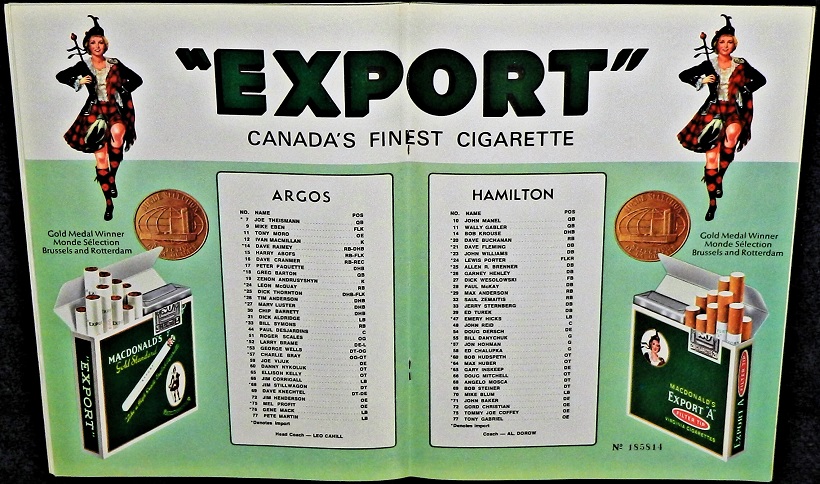
It was a glorious moment for the Toronto Argonauts and their fans 50 years ago today. The old CNE Stadium was packed on a cold, grey afternoon for the home portion of the Canadian Football League Eastern Conference final — a two–game, total–points affair between the Argos and Hamilton Tiger–Cats. Toronto had won the first game, 23–8, at Ivor Wynne Stadium the previous Sunday, thus carrying a 15–point lead into the second match. The CNE game ended in a 17–17 draw… and a 40–25 total points edge for the Argos, who advanced to the Grey Cup game for the first time in 19 years (quite a feat in a nine–team league). I was at Game 2 with my father in our season tickets (Sec. 12 of the old south bleacher). I remember watching the clock tick down in the fourth quarter… minute by minute. When the game finally ended, hundreds of fans pored onto the field to celebrate with the Argo players.
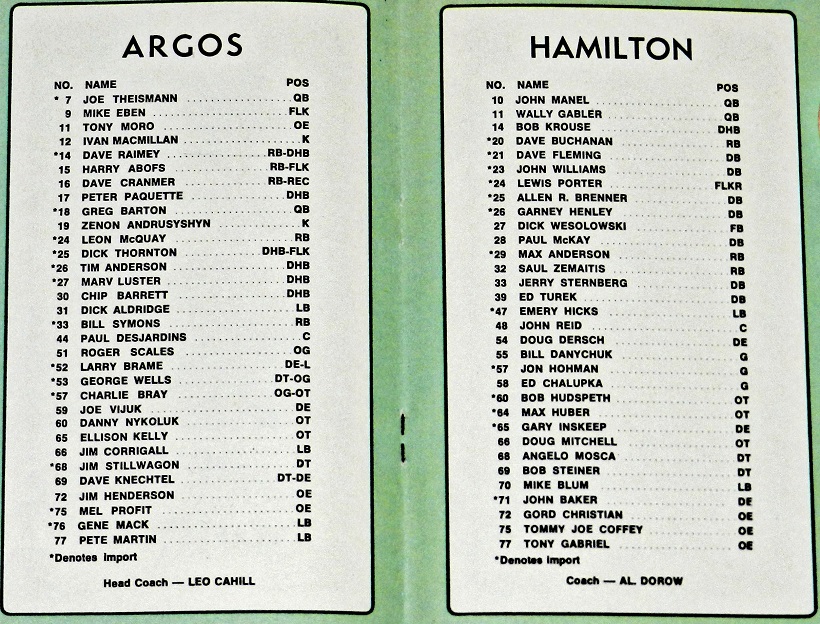
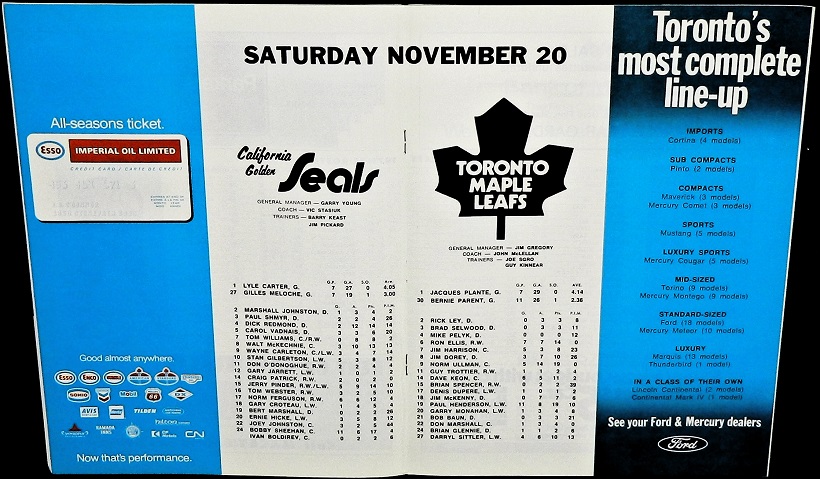
After a quick bite to eat at home, it was back in the car and down to Maple Leaf Gardens for the second half of my Saturday sports doubleheader. The California Seals were in town, with their green and gold uniforms… and white skates (remember them?). Though playing only .500 hockey, the Leafs had no problem with the Seals on this night, winning 5–1. Dave Keon scored in the first period and Ivan Boldirev tied the match for California (on the powerplay) early in the second. After that, it was all Toronto. Ron Ellis, Paul Henderson and Denis Dupere beat goalie Gilles Meloche in a 6:57 span for a 4–1 lead after two. Garry Monahan rounded out the scoring early in the third. Toronto outshot California, 41–28, with veteran Jacques Plante getting the win between the pipes. Boldirev and Mike Pelyk fought at 4:09 of the first period. Otherwise, it was a quiet night for referee Wally Harris, working the game with linesmen John D’Amico and Ray Scapinello. Toronto improved to 7–6–3 after 16 games.
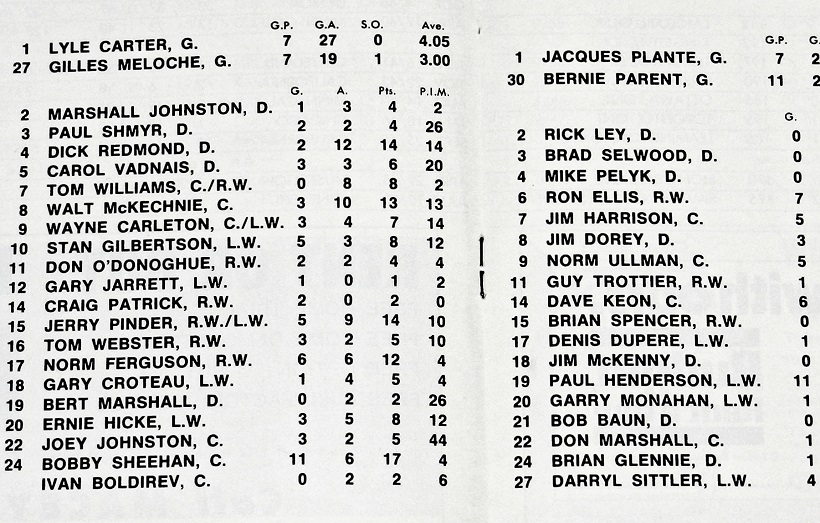
EMAIL: HOWARDLBERGER@GMAIL.COM




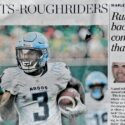



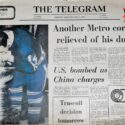






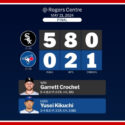

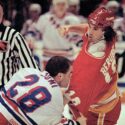
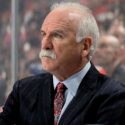

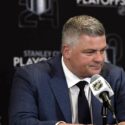

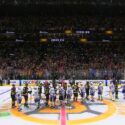
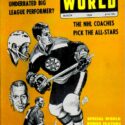
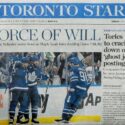






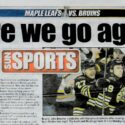


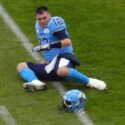

My only question is, seeing they are doing this good now, is there another gear on this team, come playoffs (pending they make it) where they can go even higher than they are now? That is, withstanding injuries, covid19 and above, sustaining a higher level of play for a couple months, should they make it. Is this as good as it can get, or is there another level when the checking is tighter and the games actually mean something?